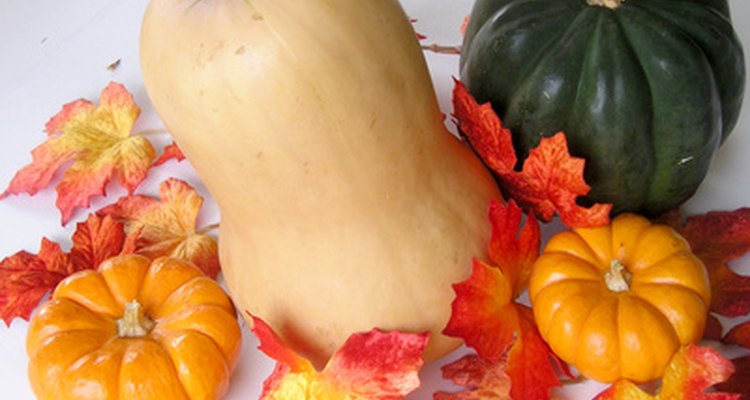
Squash has been eaten for well over 10,000 years and began as wild squash, which was grown in Guatemala and Mexico. This type of squash had little flesh and was bitter to taste. There are now varieties of squash that have been transformed into more meaty produce with a mildly sweet taste.
Biology
The butternut squash is a member of the gourd family in the Curcurbita moschata species and related to the pumpkin.
Origin
Native Americans once believed squash was so nutritious that "they buried it along with the dead to provide them nourishment on their final journey." Squash was originally grown for the seeds because they were believed to increase fertility; however, with the evolution of the butternut squash, plants produced fruit that had a thicker skin, fewer seeds and less waste. Butternut squash has a buttery orange flesh and a sweet taste.
Geography
The butternut squash is a Native American gourd, which wasn't commonly eaten until the 19th century, but is now "the most widely grown winter squash." They are planted during the summer months and are in full season during October and November, although they can be eaten year round. Florida is the largest producer of butternut squash in the United States.
Related Articles

Types of Greek Fruits & Vegetables
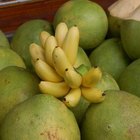
Foods From Rainforest Plants

How to Cook a Turban Squash
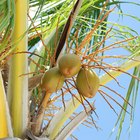
Which Nuts Are Alkaline Forming?

Baked Cubed Squash
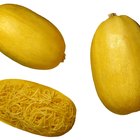
Butternut Squash vs. Spaghetti Squash
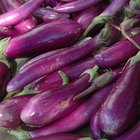
Different Names for an Eggplant

How to Cook Buttercup Squash

Different Types of Fruits & Vegetables

How to Cook Papaya Pear Squash

Information About the Orange Fruit

How to Julienne Jicama
How to Grill Chayote Squash

Differences in Acorn & Butternut Squash

What Foods Provide Calcium D-Glucarate?

The Mayan Diet
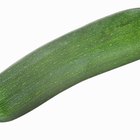
Calories in a Large Zucchini

How to Cook Delicata Squash Cut in Half

How to Blanch Squash for Freezing

How to Tell if Baked Spaghetti Squash ...
References
Writer Bio
Based in Texas, Klaire Brown has spent the past nine years working in secondary education, contributing sports articles to a local newspaper, "The Big Lake Wildcat." She received a Bachelor of Business Administration degree with a major in marketing from Angelo State University and also holds a teaching certificate.
Photo Credits
assortment of autumn squash image by Roslen Mack from Fotolia.com